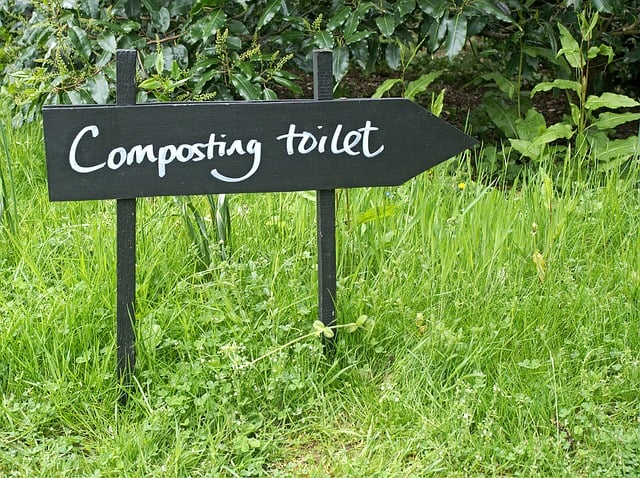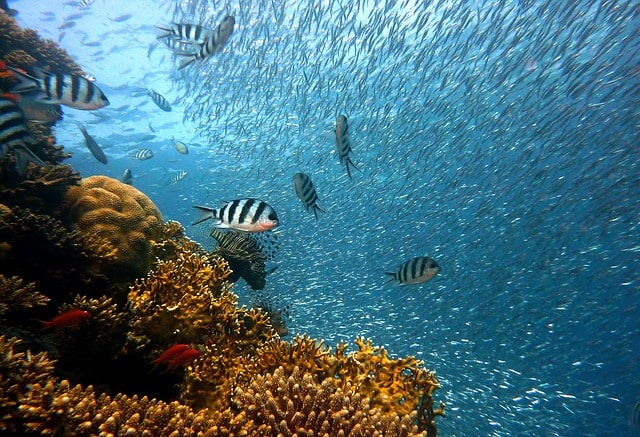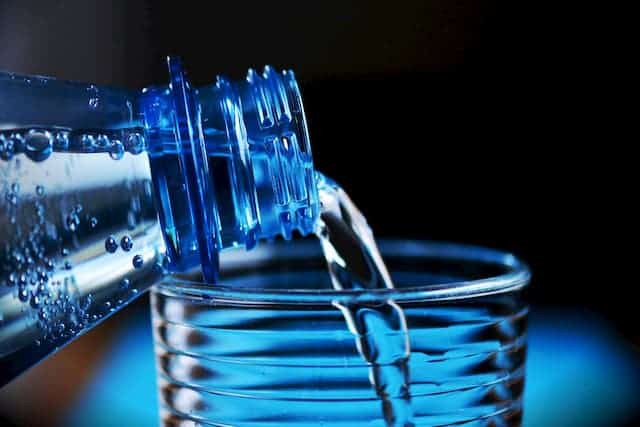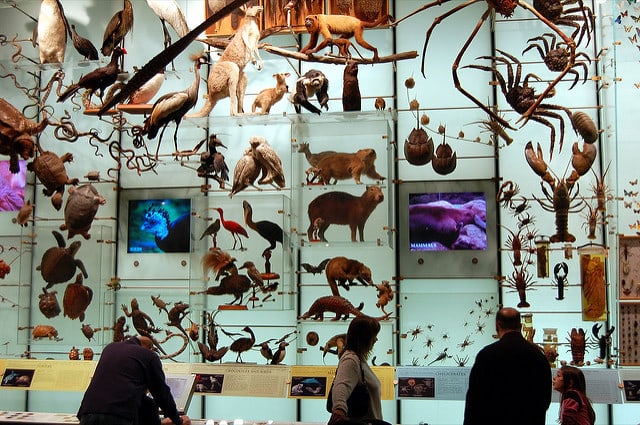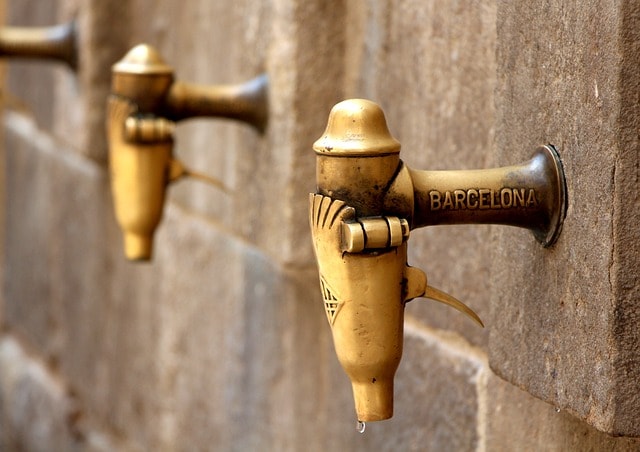Are Bamboo Straws Good For The Environment?
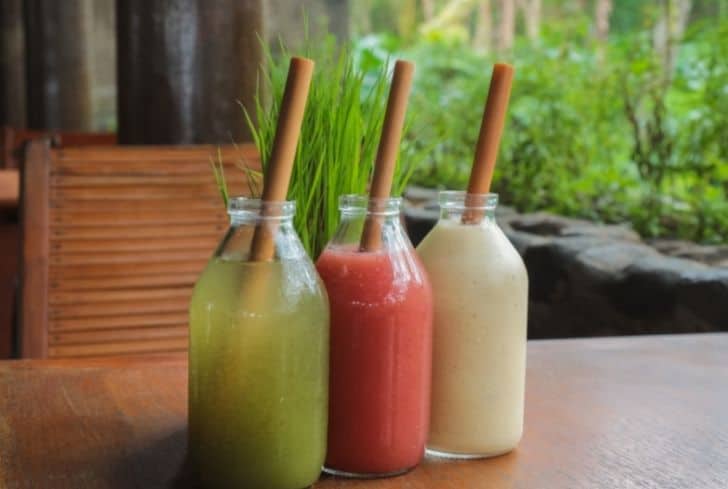
What is a good party without food, drinks, music, and people? Everybody loves to party, and when you have drinks, there must be straws. There are different types of drinking straws; you will find glass straws, bamboo straws, paper straws, aluminum straws, silicone straws, hard plastic straws, stainless steel straws, and compostable straws.
Only a few of these are reusable, like stainless steel straws, glass straws, bamboo straws, and aluminum straws. The remaining do not have reuse value. Now, when these straws have been used and lost durability, how do you dispose of them?
They break down very slowly and can make their way through our food systems as they are ingested by fish, birds, turtles, etc. This is especially concerning because plastics never fully degrade- instead, they just become smaller pieces of plastic called microplastics which make up the majority of ocean pollution today.
It’s no surprise that people are looking for more environmentally friendly alternatives to plastic straws. One of these alternatives is bamboo straws. Bamboo straws are made out of natural materials and can be used over and over again, making them a great alternative to single-use plastics like plastic straws.
Bamboo straws are among the most popularly used straws because they have an elegant design and are mostly for exotic parties. Since bamboo straws have medium reuse value, how do you dispose of them in a way that is safe for the environment?
This will be a major concern only if you are concerned with the state of your environment. This blog post is to help you with information on how you can properly dispose of bamboo straws to save the environment. And if you were not environmentally aware before, now will be a great time to change.
How Bamboo Straws are Made?
Bamboo is a renewable resource and does not require irrigation or fertilizer to grow. It can be grown in both tropical and temperate climates making it easily accessible across the world.
Bamboo straws are made from bamboo fibers, which means they do not contain any harmful chemicals that may harm you when used for drinking purposes over an extended period of time.
The bamboo fibers are either hand-cut or chopped and then steamed to make them malleable enough for the straws to be shaped into their final form.
This process is also eco-friendly as it uses less water than other processes such as drilling or cutting with a saw. It can take up to several weeks, depending on the size and thickness of the straws, before they are ready to be used for drinking.
The final product is a rigid bamboo fiber that will not get soggy or fall apart like paper or plastic straws would when exposed to moisture. It feels very similar in texture and strength to regular wood, making them a perfect substitute for conventional disposable products.
How Do Bamboo Straws Help The Environment?
Using bamboo straws may look like a strange action, but it is one of the best and most preferred alternatives to using plastic straws.
Bamboo straws help the environment in various ways that no other type of straw can. First, bamboo straws are completely natural products; they are manufactured using only natural materials, bamboo.
Not only are bamboo straws produced from a natural material, bamboo, but it is also one of the most sustainable plants in the world.
Bamboos do not need fertilizers, pesticides, or chemicals used to protect plants and ensure proper development. Bamboos regenerate from the roots, so there is no need for replanting.
Bamboo and bamboo straws do not damage the environment in any way, either animal life, plant life, or even marine life. It has been discovered that bamboos produce at least thirty percent more oxygen than other plants and absorb carbon dioxide from the atmosphere. So, bamboos help in battling climate change.
Bamboo trees grow in abundance and attain full maturity within three to five years, making bamboo straws completely sustainable and compostable. Since bamboo straws are produced from a natural product, they are beneficial and harmless to the environment.
Bamboo straws can be disposed of into compost pile; it is completely harmless and can be broken down by bacteria and microorganisms in the soil without causing any harm to the environment.
Bamboos are one of the fastest-growing trees, so the process of producing bamboo straws is cheap, harmless, and consumes less energy.
Bamboo straws are easy to maintain and do not need to be preserved with any chemicals.
Regardless of how long bamboo straws are unused, they do not rot or release toxins into the environment. Bamboo straws are handmade by artisans, and interestingly, you can make bamboo straws at home.
Are Bamboo Straws Recyclable?
One of the best ways to dispose of any item is to recycle it; this is the most common disposal method globally. However, there seems to be a setback because not every item is recyclable; so, different alternate ways are developed to properly dispose of items without harming the environment in any way.
There has been a sudden and quick transition from using plastic as the raw material for producing various household items to using other sustainable and natural products. This change is because plastic has been the major cause of damage to the environment, including plant life and animal life.
Bamboo straws are not recyclable. This will come as a surprise because bamboo straws are produced from a natural material, bamboo. Yeah, not all items produced from sustainable products can be recycled.
Usually, most bamboo products are recyclable, but if they have been mixed with artificial materials or chemicals, they are not recyclable.
But, the process of making bamboo straws is chemical-free, and there are no artificial materials used. However, you need to remember what the straws are used for, to sip a drink. Regardless of the type of drink you take, there are additives in them, which makes bamboo straws unrecyclable.
Are Bamboo Straws Reusable?
One of the questions people have been asking since the reduction in production and usage of plastic straws is if bamboo straws can be reused. This is mainly the only advantage of using plastic straws; they can be used many times before you dispose of them.
Of course, bamboo straws are reusable; you can use them repeatedly without losing the quality or great look.
However, you cannot use bamboo straws for as long as other types, like stainless steel straws, glass straws, and aluminum straws. But they still work effectively despite using it a couple of times.
One of the many benefits of using bamboo straws is that even after being reused for a long time and cannot be used as a straw again, you can upcycle them into various household items.
For bamboo straws to last for a long time, you need to take proper care of them by thoroughly cleaning them after use and storing them in a dry place.
We will look at how to properly clean bamboo straws to ensure they have great reuse value for a long time. It is best to always rinse the bamboo straws after each use, ensuring to clean and scrub the inside with a cleaning brush.
It would help if you cleaned the bamboo straws with vinegar and boiling water after you have used them about fifteen times.
You can also apply some coconut oil to the bamboo straws after a few months of using them. Use a natural coconut husk cleaning brush to scrub the inside of the bamboo straws. You should ensure the bamboo straws are completely dried before using them again.
When drying out bamboo straws, dry them vertically instead of horizontally, so the water runs straight to the bottom. Drying them horizontally will take longer for them to be dried
Are Bamboo Straws Biodegradable?
A biodegradable product can be broken down by bacteria and microorganisms without causing damage or releasing toxins into the environment. Yes, bamboo straws are biodegradable. This is one of the benefits of bamboo straws over other types of straws.
Although, the time it will take bamboo straws to biodegrade depends on the type and the environment. If additives were used during the process of manufacturing, it would take a longer time to biodegrade than bamboo straws with no additives. However, some conditions aid the biodegrading process of bamboo straws.
For bamboo straw to biodegrade quickly, there must be direct contact with the soil, it must be exposed to either sunshine or rain, and the soil must be relatively warm. Microorganisms tend to reproduce faster in warmer conditions, and this aids biodegradation.
The four important factors bacteria and microorganisms need to break down any product are oxygen, water, light, and warm temperature. As long as these are perfect, any bamboo straw will biodegrade fast.
Are Bamboo Straws Compostable?
Compostable products can be broken down by microorganisms, and they fertilize the soil as they decompose. Bamboo straws are hundred percent compostable.
You can place them in the compost bin, and they will decompose and form compost for the soil. Bamboo straws can be composted at home or in compost facilities.
To ensure the bamboo straws compost faster, ensure they have absorbed excess moisture or the compost bin is fairly wet. You should keep any form of plastic or unsustainable product away from the compost pile, it can ruin the entire pile, and rather than fertilizing the soil, it causes damage instead.
If chemicals have contaminated the bamboo straws, the composting process will be difficult because microorganisms are not built to break down artificial products.
So, if you put bamboo straws in the compost pile, you should prepare them by cutting them into smaller pieces and ensuring there is adequate aeration, moisture, and heat.
Are Bamboo Straws Sustainable?
We mentioned earlier that bamboo is one of the most sustainable plants globally, so all bamboo products are sustainable. When a product is termed as sustainable, this means the process of production, usage, and final disposal of the product does not harm the environment in any way.
The process of manufacturing bamboo straws is completely sustainable. First, the stalks of the bamboo tree are cut off and dried naturally under the sunlight.
After the stems have been cut into suitable lengths, they are sanded, filed, and etched to create a natural and smooth finish. This process does not harm the environment in any way.
Can Bamboo Straws Be Cleaned in a Dishwasher?
Bamboo straws are actually not dishwasher safe. The reason is that the heat would cause them to lose their structural integrity, which can result in cracks and splits.
Why Are Bamboo Straws a Great Alternative For Plastic Straws?
Following are the reasons why bamboo straws are considered an excellent replacement for plastic straws:
- They are 100% biodegradable and decompose within months of disposal.
- Bamboo straws do not contain any chemicals, toxins, or contaminants that might affect the food quality in a negative way.
- Since they can be used for drinking hot beverages like coffee and tea as well, you get to save more by reusing them.
- Bamboo straws are also great for those who have wheat allergies as they do not contain any traces of gluten.
- They come in a variety of different colors and designs that can suit your preferences and tastes perfectly.
- You don’t need to worry about them harming the environment or marine life anymore since bamboo is easy to grow and does not require chemicals or pesticides for its growth.
- Bamboo straws are also an eco-friendly way of promoting healthy living, which is always a good thing.
Conclusion
You cannot deny that bamboo straws are one of the most photogenic drinking straws. Bamboo straws are used in lots of advertisements because it is aesthetically pleasing.
What is more perfect than a cool item that is also sustainable. So, you can capture that beautiful picture and be rest assured you are not causing any damage to the environment.

